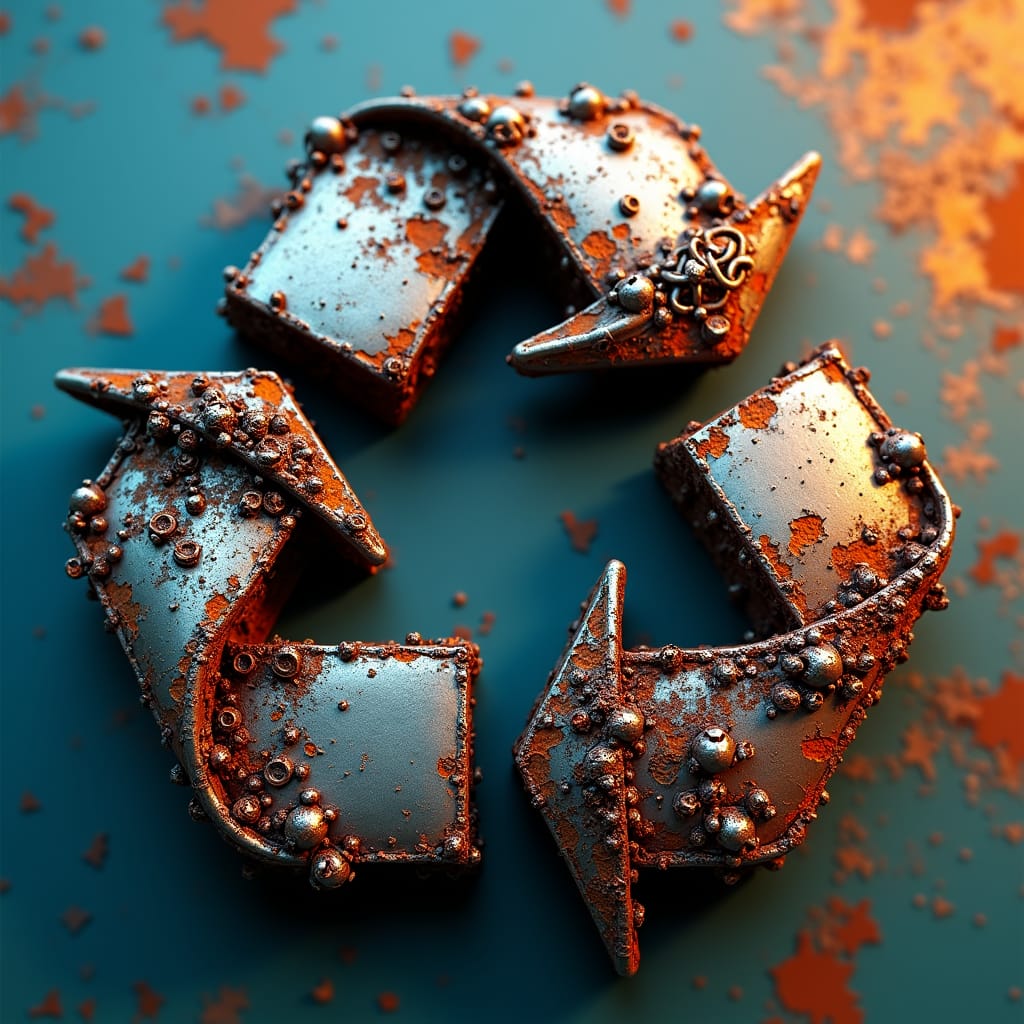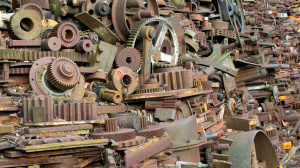Scrap Metal Inspections
Ruswal Global are a DGFT-accredited Pre-Shipment Inspection Agency for scrap metal exports to India. Operating in UK, Netherlands & Europe. ISO 17020 certified. Over 25 years experience
Ruswal Global specialises in scrap metal inspection and cargo survey services, adhering to the highest industry standards and DGFT (Directorate General of Foreign Trade) requirements. With over 25 years of experience in the cargo survey sector, our accredited third-party scrap metal inspections ensure quality control and compliance for both ferrous and non-ferrous scrap metals throughout the recycling process.
Detailed Scrap Metal Inspection Procedure:
As an accredited scrap metal inspection agency, we provide independent, unbiased scrap metal inspections, that meet all DGFT and international standards for scrap metal recycling and trade. Our rigorous scrap metal inspection process helps clients avoid conflicts with suppliers and enables timely and reasonable claims on the quality and quantity of scrap metal, preventing financial losses.
The Directorate General of Foreign Trade (DGFT) plays a crucial role in regulating scrap metal imports and exports in India. As per DGFT regulations, all scrap metal shipments require a Pre-Shipment Inspection Certificate (PSIC) issued by authorised agencies.
This certificate is essential for verifying that the scrap metal meets quality and safety standards, particularly regarding radioactive contamination and explosive materials.

Ruswal Global, as a fully authorized and accredited Pre-Shipment Inspection Agency for the Government of India and DGFT, conducts comprehensive scrap metal inspections that comply with these stringent requirements. Our inspections cover detailed analysis, material assessment, and verification of scrap metal composition and quality control. We issue a full report with photographic evidence and a PSIC as per DGFT specifications, which is crucial for confirming compliance, facilitating smooth export procedures, and avoiding potential issues related to DGFT regulations This certification process is essential for ensuring that scrap metal .
Streamlining Supply Chain Operations through Scrap Metal Inspections
Effective scrap metal inspections are essential for optimising supply chain efficiency. By identifying quality issues early in the recycling process, businesses can reduce waste and improve operational workflows. Our detailed scrap metal inspections help streamline the handling of scrap, ensuring that only high-quality materials are processed. This efficiency translates to cost savings and enhanced profitability for our clients.
1. Pre-Shipment Inspection and Material Assessment:
- Conduct thorough visual quality assessments of scrap metal to identify impurities, off-spec materials, and ensure compliance with technical standards.
- Perform contamination checks on scrap metal to ensure it is free from hazardous materials, including radioactive substances and other contaminants.
- Utilise advanced radioactivity testing with calibrated radiation monitors to safeguard workers and the environment during scrap metal handling.
- Execute explosive-free checks to enhance safety during the inspection of scrap metal shipments.
- Carry out impurity, oversize, and off-grade estimation to determine the quality and suitability of scrap metal for recycling applications.
2. Loading and Discharge Supervision:
- Conduct draft surveys and hold inspections for bulk scrap metal shipments to verify compliance with international regulations and quality standards.
- Supervise loading and discharge operations of scrap metal, ensuring that all procedures adhere to safety and quality regulations.
- Implement weighing supervision, including calibration checks, to ensure accurate weight measurements of containers (both empty and full) containing scrap metal.
3. Quality Control and Laboratory Analysis:
- Collect representative samples of scrap metal for laboratory analysis to verify chemical composition and quality.
- Utilise high-precision spectrometers for elemental analysis, ensuring that scrap metal meets industry specifications for recycling.
- Monitor temperature control when necessary to maintain the integrity of temperature-sensitive scrap metal materials.
4. Compliance Documentation and Reporting:
- Issue a comprehensive PSIC (Pre-Shipment Inspection Certificate) to confirm compliance with DGFT regulations and facilitate smooth export procedures for scrap metal.
- Prepare detailed scrap metal inspection reports that include photographic evidence and findings related to the quality and quantity of scrap metal, supporting any claims in case of disputes.
- Ensure thorough documentation of all scrap metal inspection stages, including the inspection date, location, and outcomes related to scrap metal.
5. Additional Specialised Services:
- Conduct stock audits at scrap yards and warehouses to assess the quality and compliance of scrap metal stock piles.
- Provide risk management assessments to identify and mitigate potential issues in the scrap metal trade, ensuring safe handling and processing.
- Verify compliance with import/export regulations and technical standards for scrap metal, ensuring that all materials are suitable for recycling.
- Radiation monitors for precise detection of radioactive materials in scrap metal.
- Spectrometers for accurate metal composition analysis of scrap metal.
- Portable XRF analyzers for rapid on-site elemental identification of scrap metal.
- Digital imaging systems for detailed visual documentation of the scrap metal inspection process.



Types of Scrap Metal for Inspection
Understanding the various types of scrap metal is essential for effective scrap metal inspections.
Scrap metal inspectors categorise materials into two main groups: ferrous metals and non-ferrous metals. Ferrous metals contain iron and are magnetic, making them the most commonly inspected and recycled metals. Scrap metal inspectors assess their strength and durability while checking for rust. Non-ferrous metals do not contain iron, making them lighter and more resistant to corrosion. Scrap metal inspectors often find these metals more valuable.
Ferrous Metals
Common Types of Ferrous Metals:
- Heavy Melting Steel (HMS) :
- HMS 1 : Comprises heavy steel scrap with a minimum thickness of 1/4 inch (6.35 mm). Inspectors verify the absence of galvanized materials. This type typically requires a more thorough inspection due to its higher value.
- HMS 2 : Includes lighter steel scrap with a minimum thickness of 1/8 inch (3.175 mm). Inspectors check for the presence of galvanized materials during the inspection process.
- Cast Iron : Commonly found in old pipes, automotive parts, and cookware. Inspection procedures focus on assessing weight and brittleness.
Non-Ferrous Metals
Common Types of Non-Ferrous Metals for Inspection:
- Aluminum : Frequently encountered in drinks cans, food packaging, and construction materials. Inspection procedures focus on verifying its lightweight nature and recyclabili
- Copper : Known for its excellent conductivity, copper is often found in electrical wiring, plumbing, and appliances. Inspectors pay special attention to this valuable non-ferrous metal.
- Brass : A mixture of copper and zinc, brass is found in plumbing fixtures, musical instruments, and decorative items. Inspectors assess both aesthetic appeal and durability during the inspection process.
- Lead : Often sourced from batteries and plumbing, lead requires specialized inspection procedures due to its toxicity. Inspectors ensure proper handling and recycling during the inspection process.
Importance of Accurate Scrap Metal Inspection and Classification
Accurate classification during scrap metal inspections is vital for ensuring compliance with recycling standards and achieving fair pricing. At Ruswal Global, our comprehensive scrap metal inspection services include:
- Detailed assessments of material types and grades
- Maximizing returns while adhering to industry regulations
- Enhancing the efficiency of recycling operations
- Supporting sustainable practices in the scrap metal inspection industry
Understanding these classifications not only benefits your operations but also contributes to a more sustainable future in scrap metal recycling.
The role of Scrap Metal Inspections in Sustainability.
Scrap metal inspections play a vital role in promoting sustainable practices within the recycling industry. By ensuring that scrap metals are free from contaminants and hazardous materials during scrap metal inspections, we contribute to a cleaner environment and a safer recycling process. Our thorough scrap metal inspections not only meet regulatory requirements but also support the global movement towards sustainable resource manageme

Global Reach and Local Expertise:
Ruswal Global conducts scrap metal inspections at major ports and facilities across the UK and Europe, offering tailored services that cater to the specific needs of our clients. Our extensive network ensures that we can provide reliable scrap metal inspections whether in bustling urban centers or remote locations, Improving accessibility for all businesses involved in the scrap metal trade. With a strong understanding of local regulations and market dynamics, we ensure compliance with both regional and international standards.
This combination of global reach and local expertise allows us to deliver timely, accurate inspection results, helping clients navigate potential challenges and maintain the integrity of their operations in the competitive scrap metal industry.
Contact us to see if we can perform a scrap metal inspections in you area.
As the scrap metal industry continues to evolve, so too will the methods and technologies used in scrap metal inspections. Innovations such as automated inspection systems and advanced data analytics are set to transform how inspections are conducted. At Ruswal Global, we are committed to staying at the forefront of these developments, ensuring that our clients benefit from the most effective and efficient scrap metal inspection services available.
Our team is dedicated to delivering precise and thorough scrap metal inspections.
Contact Us Today to learn more about how our scrap metal inspection services can benefit your business.
Frequently asked questions
What is a scrap metal inspection?
A scrap metal inspection is a thorough examination of scrap metal shipments to verify quality, composition, and compliance with industry standards and regulations. It involves checking for contaminants, assessing metal grades, and ensuring proper documentation.Why are scrap metal inspections important?
Scrap metal inspections are crucial for ensuring quality control, preventing contamination, complying with international trade regulations, accurately determining the value of shipments, and maintaining safety standards in recycling processes.What does a scrap metal inspection typically involve?
A typical inspection includes visual assessment of the scrap metal, sampling and testing for composition, checking for radioactive materials, verifying weight and quantity, examining for hazardous contaminants, and ensuring proper documentation.How often should scrap metal inspections be conducted?
Inspections should be conducted for every shipment, especially for international trades. Regular inspections are also recommended for ongoing supplier relationships to maintain quality standards.Who performs scrap metal inspections?
Inspections are typically carried out by certified third-party inspection agencies, such as Ruswal Global Inspections Ltd, who have expertise in metallurgy and international trade regulations.Can Ruswal Global accommodate inspections in my area
Yes! Ruswal Global Inspections Ltd operates globally, accommodating inspections in major ports and locations across Europe, Asia, Africa, and the Americas. Contact us to see if we can cover your area and provide tailored inspection services to meet your needs.
Services
Loading Supervision
Discharge Supervision
Pre-Shipment Inspection
Sampling and Testing
Pre-Purchase Inspection
Cargo Inspection
Scrap Metal Inspection
Steel Products
Food Products
Fertilisers
Fuels
Grain
Paper
Coal
Machinery
Marine Survey
Draft Survey
Bunker Survey ( BQS)
Condition Survey
On/off hire
Hatch cover testing
Ship Superintendency
Glossary of terms related to our services
Certifications
Newsfeed
Contact Us![]()
![]()
+31 108 90 65 29
+44 204 577 09 29
ruswal@ruswal.org
Related Information
Bureau of International Recycling (BIR) - Scrap Recycling
Official information on scrap recycling and industry standards.
Recycling.com - Scrap Metal Information
Comprehensive resources on scrap metal recycling and processes.
Institute of Scrap Recycling Industries (ISRI)
Industry standards and practices for scrap recycling.
European Recycling Industries' Confederation (EURIC)
Information on recycling policies and regulations in Europe.

